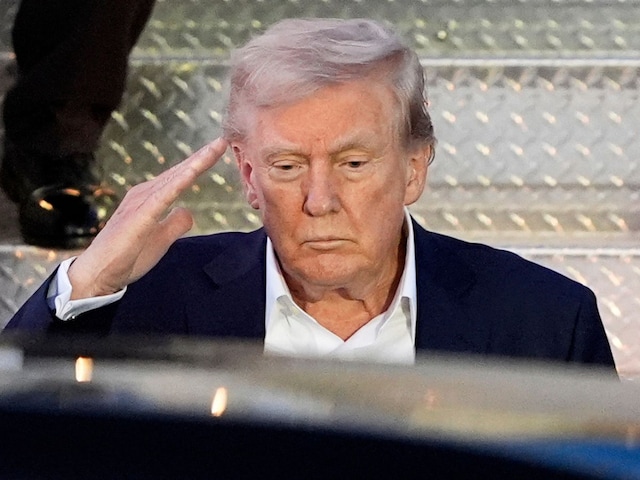Last updated:
Donald Trump had declared a national emergency on the southern border as soon as he took over the President. With this, the possibility of implementing the Rebellion Act of 1807 is expected. This has increased the possibility of army deployment in America.

Donald Trump can apply orders like Marshal Law on 20 April. (Image: AP)
Highlights
- Trump declared a national emergency on the southern border.
- Trump can implement the Rebellion Act of 1807 on 20 April.
- The fear of army deployment increased from the Rebellion Act.
Washington. When Donald Trump took over as US President on 20 January, he first signed an executive order. This order was related to declaring the national emergency on the southern border of America. There was a condition in this order that President Trump could implement the Rebellion Act of 1807, ninety days after the signing of the executive order and possibly deploying an army on the US soil on 20 April. The apprehensions in America have started gaining momentum in the US that Trump can take the army on his own earth to stop infiltration.
What is the Rebellion Act of 1807?
According to the 1807 Rebellion Act, the President of America may allow the deployment of Army and American National Guard to enforce the law in certain circumstances and conditions. The Act gives the army the right to fully suppress any rebellion, upheaval, or any kind of violence or resistance. Which includes resistance made by citizens.
Possi Comitatus Act
The Rebellion Act has powers to override the Posa Comitatus Act, which is always applicable. This law prevents the US Army from participating in any civil law enforcement or intervening. It gives the commander-in-chief of the US forces to the President to decide when, where and how American soldiers should be deployed within the US.
Harvard University: Why did Harvard professors sued US President Trump?
Is the Rebellion Act like martial law?
The Rebellion Act is somewhat different from martial law. While the entire control of administration and state affairs in martial law is handed over to a military general, the state and administration powers in the Rebellion Act with the US President. Those who use select military powers to apply laws and order. In other words, while in martial law, the army is allowed to take the role of a civilian government, the rebellion act allows the army to help only civil officers, not to replace them.


